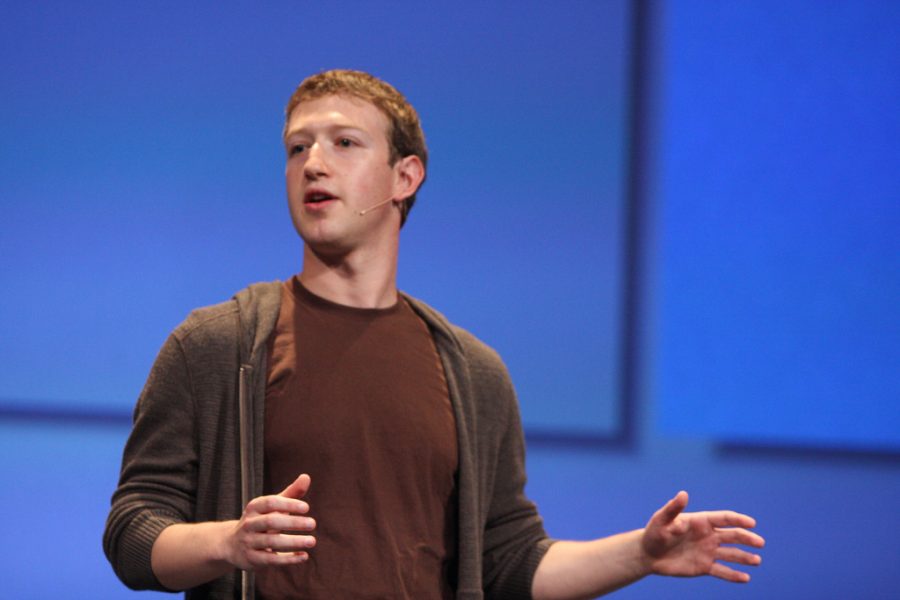Students go unfazed by Facebook scandal
Credit: Brian Solis, Flickr
Facebook founder and CEO Mark Zuckerberg, above, came under fire after the data of 87 million Facebook users was breached. The scandal involved British data consulting firm Cambridge Analytica. Zuckerberg spoke before Congress about the scandal on April 10th.
June 5, 2018
There is a tidal wave of discontent about how social media uses our private data and Facebook, despite its size, is a risk of being washed away by it. So far these revelations seem to not have affected the way students at Hackley use social media platforms.
Facebook is under investigation by the Federal Trade Commission because the private information of millions of users was often retrieved without their knowledge by Cambridge Analytica, a British political consulting firm. Information regarding the search history of users was made accessible. Additionally, Facebook users experienced the interference of Russia during the 2016 election. Mark Zuckerberg, the CEO and founder of Facebook, was called to hearings in the House and the Senate on April 10th. He was bombarded with questions regarding the privacy of the users, and what information Facebook can access from users’ accounts.
According to Time, the information of 87 million Facebook users in United States was accessed and potentially affected by the scandal. Countries that were also significantly impacted include the Philippines, Indonesia, and the United Kingdom, with the information of 1.18, 1.10, 1.08 million users accessed, respectively.
The majority of Hackley Upper School students have Facebook accounts and are active users, and have had experiences where their accounts were hacked and personal information was accessed. However, based on Dial reporting, most students in our community are unaware of the recent Facebook scandal and resulting breach in privacy, so it simply does not affect their usage and opinion about social media. Additionally, they are not concerned about the impact of Facebook on their personal information.
Sophomore Sophia Masotti uses Facebook to stay up-to-date with her extracurricular activities including sports teams and clubs.
“I don’t really use Facebook for anything other than seeing posts from clubs or teams. I never post pictures or anything personal on my account,” she said.
For Sophia, the breach in privacy does not affect her opinion of Facebook, and she will continue to use it, “I have my privacy settings on, so people really can’t find that much information about me, so I will continue to use Facebook as I did before.”
In contrast, Junior Isabelle Thomas is an active user of Facebook and checks it often, but she is similarly undeterred from using the platform.
“There are privacy controls on my account that restricts my friends from seeing personal information such as my phone number,” she said.
Facebook is not her preferred platform of social media, but she uses it frequently. In regards to the Facebook scandal, Isabelle says, “I am not exactly surprised because that sort of thing has happened before and with the amount of technology that we have today it’s not surprising that companies like Cambridge Analytica can access the information of Facebook users. I feel that it doesn’t just happen with Facebook, but all over the internet and the sharing of information and issue of privacy will soon become the norm.”
As Senior Ben Ostfield points out, the way facebook is used has changed over the past years.
“When it first started, you put all your interests there, but now it’s just more of a tool: big announcements, less socializing,” he said.
In light of the scandal, Facebook and other social media platforms are now trying to improve privacy settings on accounts to ensure that the information of various users is protected.

